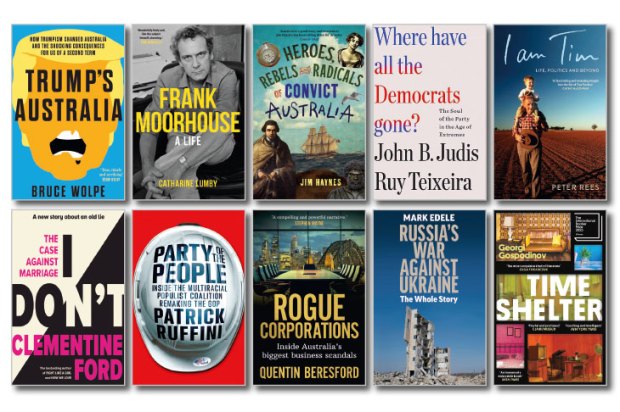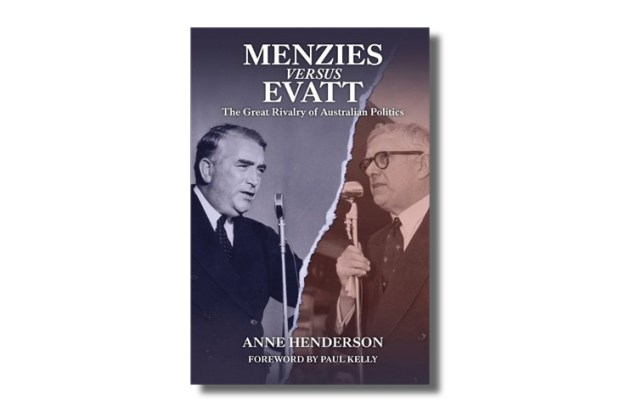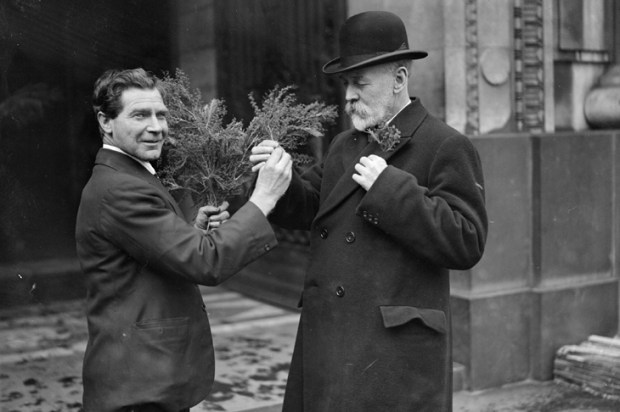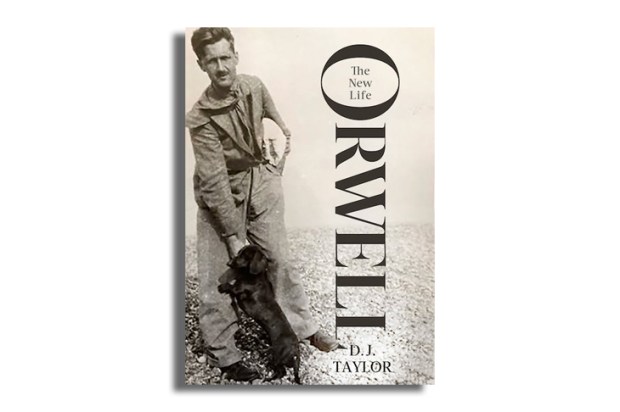The Lucky Culture and the Rise of an Australian Ruling Class
By Nick Cater
HarperCollins, $29.99, pp 309
ISBN 9781743098134
Australia is a ‘lucky country’, said Donald Horne in his celebrated book, ‘run mainly by second-rate people who share its luck.’ By contrast, The Lucky Culture, Nick Cater’s counter-thesis, holds that we are over-influenced and over-analysed by second-rate intellectuals who are incapable of counting their blessings.
At one level, this beautifully written and perceptive book is a historical essay on Australia’s public culture. At another, it’s a personal reflection by a refugee from Thatcherism, now a born-again conservative thanks to the personal experience of life in this country observed and analysed with a newspaperman’s thoroughness.
Cater instantly fell in love with Australia as a land of opportunity, equality and informality; the very antithesis of the class-ridden Britain he was leaving. ‘Australians instinctively understand,’ he says, ‘that… to deny someone a fair go, to disparage lowly work, to bludge on your mates or to get above your station is to be un-Australian.’ This, he declares, is ‘the Australian contract’ to which he and millions of other migrants enthusiastically subscribed.
What he also swiftly assimilated was Australians’ no-nonsense, down-to-earth attitude towards making the most of themselves and their country. Australia’s luck, he notes, ‘did not fall from the sky. It had to be torn from the earth in a triumph of mind over muscle’. Naturally, he celebrates the classics of ingenuity that every Australian schoolchild could once recite: the stump-jump plough, the Ridley stripper, rust-resistant wheat, the Sunshine harvester and, above all, the Snowy Mountains scheme.
As befits a seasoned reporter-cum-senior-editor at the Australian, Cater garnishes this book-length editorial with pithy stories. Emblematic is the decision of the Victorian Railway Commission’s chief to christen the Melbourne-to-Sydney express ‘The Spirit of Progress’. It symbolised post-war Australia’s instinctive belief in the superiority of science over prejudice, reason over superstition, effortlessness over exertion, and modernity over times past.
As Cater sees it: ‘The spirit of progress is as strong in Australia as in America; the two cultures share the assumption articulated by Tocqueville “that man is endowed with an indefinite faculty for improvement… forever seeking, forever falling to rise again, often disappointed but not discouraged”.’
Today, of course, the most acceptable infrastructure project is the one that never actually gets built and the most acceptable new technology is the one that’s not actually being implemented. A celebration of this spirit of progress — and palpable frustration at those who would impede it — permeates the book.
As Cater sees it, there’s a powerful new commentariat, dominant in the media, academia and public administration, that is every bit as condescending as the aristocracy he left behind in Britain. In contemporary Australia, the worst snobbery is not directed towards people of lower status, he says, but towards people of different opinions. He thinks that this ‘my opinion must be better than yours’ conceit is putting at risk the egalitarianism that’s at the heart of Australians’ sense of self.
What distinguishes this group from every other influential sector of society is its unshakeable conviction in its moral superiority. Everyone who disputes its thinking is not just wrong, but inferior. Critics of the politically correct consensus are not just bad thinkers but verge on being bad people, as those who are cautious about gay marriage are starting to discover.
Cater gives us a potted history of the Australian higher education sector, along the way pointing out that its great expansion was started by Sir Robert Menzies, not Gough Whitlam. He provides a shrewd analysis of the human rights apparatus, citing Whitlam’s assessment that there wasn’t actually much racial discrimination to be tackled in Australia. The exercise, said the then-Prime Minister, ‘is not so much to correct present abuses… but to set standards for the future’. Cater gives a thorough account of the evolution of the ABC from news reporting to news interpreting, quoting former Howard staffer Grahame Morris’s pithy assessment that, for conservatives, the ABC is our ‘enemy talking to our friends’.
Much of the book is devoted to explaining how the Australian Labor Party’s focus has shifted from the concerns of rank-and-file workers to the interests of various protest groups. Over the past 40 years, Cater thinks, the traditional political order has been more or less turned on its head, with the Liberals becoming the party of workers and Labor representing inner-city intellectuals. For Cater, the most telling illustration of change was the 2004 election cameo of Mark Latham needing to sneak into a meeting of Tasmanian forest workers who subsequently cheered John Howard.
Happily, the book’s subtitle, ‘The Rise of an Australian Ruling Class’ is not entirely substantiated. Cater correctly identifies the cultural self-doubt verging on self-loathing that permeates much of our media and higher education. As he clearly demonstrates, though, most Australians are cheerfully resistant to these national and civilisational neuroses. Australians are even less deferential to the thought police than they are to the ones wearing uniforms. They routinely vote into office governments that those whom Howard labelled ‘self-appointed cultural dieticians’ would vociferously deplore.
Luckily, for those who think that a farming region is no less valuable than a national park, a mine an important contributor to prosperity (at least if it’s done right), and successful businesses just as necessary for civilisation as a human rights bureaucracy, politically correct critics don’t constitute an Australian ruling class at all. They are certainly influential and often have a corrosive influence on public morale, but they rarely seem to disturb Australians’ preference for facts over conjecture, actual experience over mere theory, and material progress over new class respectability.
Prime Minister Gillard may represent, as Cater thinks, Labor’s ultimate abandonment of workers in favour of union careerists and Green ideologues, but even here there’s hope. In resigning from Gillard’s cabinet, elder statesmen Simon Crean and Martin Ferguson recalled a Labor tradition that saw unions as just one element in a workplace partnership. Successful democratic politics is about capturing the middle ground. That’s why the next really successful Labor leader will end up fighting the Greens as surely as John Howard fought One Nation and Ben Chifley fought communism.
As Cater concedes: ‘Outside the inner clique that dominates politics, academia and the media, the Australian spirit remains strong. It’s not… the spirit of the frontier but the spirit of the front bar: pragmatic, personable and above all generous.’
Got something to add? Join the discussion and comment below.
Get 10 issues for just $10
Subscribe to The Spectator Australia today for the next 10 magazine issues, plus full online access, for just $10.













Comments
Don't miss out
Join the conversation with other Spectator Australia readers. Subscribe to leave a comment.
SUBSCRIBEAlready a subscriber? Log in